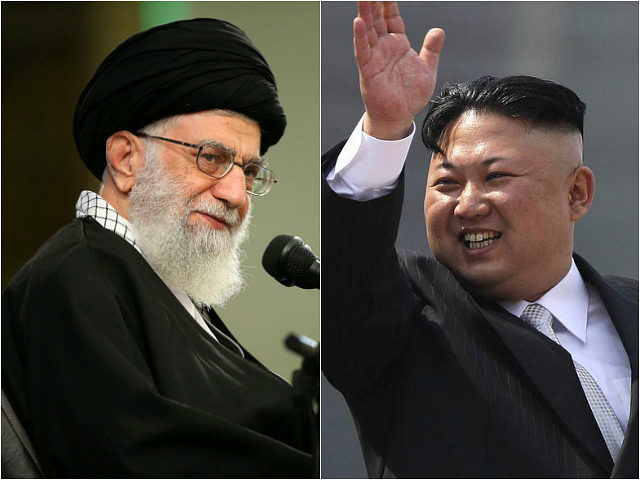It has long been obvious that North Korea shares missile technology with Iran, but Fox News reports the Pentagon is investigating military ties between the two belligerent nations with increased vigor after Iran’s recent test launch of a submarine missile.
With tensions running so high over North Korea and possible missile launches or nuclear tests from that rogue nation, it is not surprising that Iran’s submarine launch drew relatively little attention. The launch was conducted by a “midget” submarine in the Strait of Hormuz on Tuesday and was pronounced a failure by U.S. officials.
However, analysts quoted by Fox News describe the Iranian test as a significant event and the latest example of Iran using equipment modeled after North Korean designs. Only North Korea operates the type of minisub involved in Iran’s underwater launch, and the cruise missile involved was similar to North Korean models. So were the ballistic missiles tested by Iran in January, and the previous summer. Iran’s Shahab missile is described as “almost identical” to North Korea’s Taepodong.
Most disturbingly, proliferation expert Jeffrey Lewis of the Middlebury Institute of International Studies notes evidence that Iran is helping North Korea improve its weapons. “In the past, we would see things in North Korea and they would show up in Iran. In some recent years, we’ve seen some small things appear in Iran first and then show up in North Korea and so that raises the question of whether trade – which started off as North Korea to Iran – has started to reverse,” he said.
Together, North Korea and Iran may be developing a decisive advantage in land-based short- and medium-range missiles over the United States, which is restricted from developing such weapons by the 1987 Intermediate Range Nuclear Forces treaty with Russia. Also, quiet electric mini-subs with missile capability could be a tremendous threat to navigation through the vital Strait of Hormuz, which Iran periodically threatens to shut down.
Iranian officials announced a whopping 145 percent increase in military spending last month, financed in large part — according to both U.S. analysts and sources within Iran — by the cash windfall from President Barack Obama’s nuclear deal. The explicit goal of Iran’s spending binge is to improve the offensive capabilities of its military.
Naturally, there are concerns about the possibility that North Korea will help Iran develop nuclear weapons. In an interview with Breitbart News Radio last week, former U.N. ambassador John Bolton suspected Iran would simply wait until North Korea develops miniaturized nuclear warheads suitable for ballistic missiles and then purchase the technology from Pyongyang.
“It’s entirely foreseeable that the day North Korea gets the capability to drop a nuclear warhead on the United States via ballistic missile, Iran could have that capability the next day by writing a check in the right amount of money,” Bolton warned.

COMMENTS
Please let us know if you're having issues with commenting.